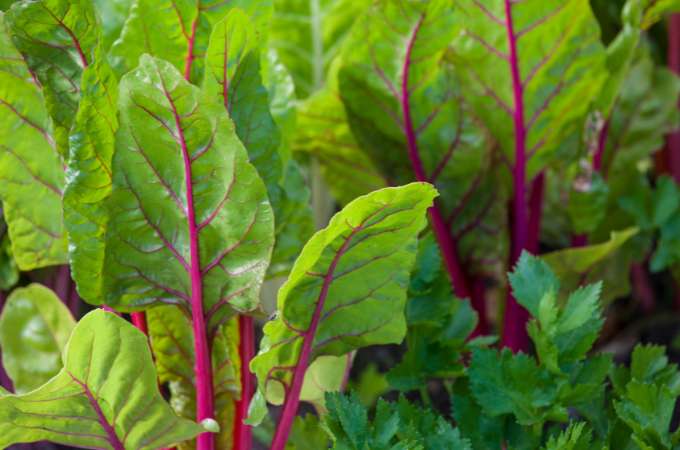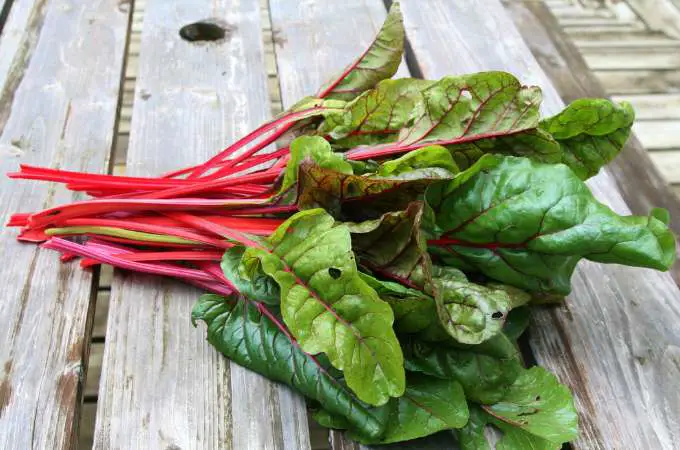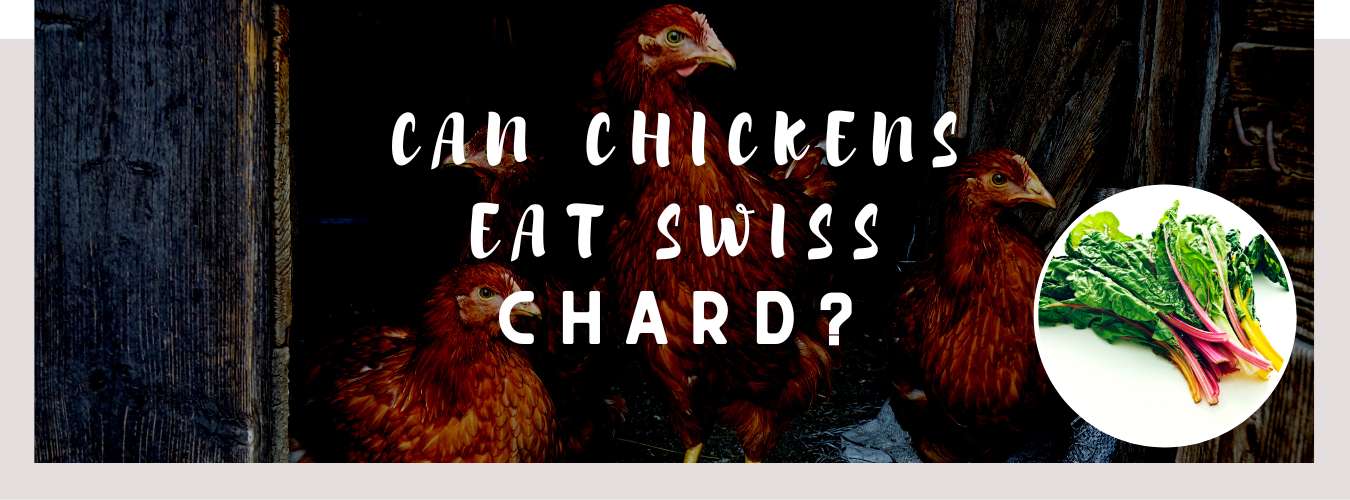
Chickens are known for their diverse diet, often pecking around for various foods. A common question among poultry enthusiasts is, “Can chickens eat Swiss chard?” This article aims to provide a comprehensive answer, exploring the benefits, potential risks, and guidelines for feeding Swiss chard to chickens.
Nutritional Benefits of Swiss Chard for Chickens
Swiss chard is a nutrient-rich vegetable that can be a healthy addition to a chicken’s diet. It is packed with vitamins A, C, and K, along with essential minerals like potassium and magnesium. These nutrients contribute to the overall health of chickens, supporting their immune system, bone health, and more.
Vitamins and Minerals in Swiss Chard
- Vitamin A: Essential for maintaining good vision, growth, and reproductive health.
- Vitamin C: Helps in stress reduction and boosts the immune system.
- Vitamin K: Important for blood clotting and bone metabolism.
- Potassium and Magnesium: Aid in muscle function and overall health.
Potential Risks When Feeding Swiss Chard to Chickens
While Swiss chard is generally safe for chickens, there are a few considerations to keep in mind:
- Oxalic Acid Content: Swiss chard contains oxalic acid, which in large amounts can lead to health issues like kidney stones. However, in moderation, the risk is minimal.
- Pesticides: Ensure that the Swiss chard is free from harmful pesticides that can affect chicken health.
How to Feed Swiss Chard to Chickens
Introducing Swiss chard into a chicken’s diet should be done gradually. Here are some tips:
- Start with Small Amounts: Begin by offering small pieces of Swiss chard to see how your chickens react.
- Raw or Cooked: Chickens can eat Swiss chard both raw and cooked, but raw is often more appealing to them.
- Mix with Other Foods: Combine Swiss chard with other safe vegetables to provide a varied diet.
You might also like: Can Chickens Eat Banana Peppers?

Frequency and Quantity of Swiss Chard for Chickens
Swiss chard should not be the primary food source for chickens. It’s best served as a supplement to their regular diet.
- Moderation is Key: Offer Swiss chard in moderation, a few times a week.
- Balance the Diet: Ensure that chickens have a balanced diet including grains, proteins, and other vegetables.
Understanding Swiss Chard: A Nutritional Powerhouse for Chickens
Swiss chard, a leafy green vegetable, is not just a colorful addition to the garden but also a nutritional powerhouse. Its leaves and stalks come in a variety of colors, including red, white, yellow, and green, making it visually appealing. For chickens, this vegetable serves as a source of essential nutrients that can enhance their health and egg production.
- Rich in Antioxidants: Swiss chard is loaded with antioxidants like beta-carotene, zeaxanthin, and lutein. These compounds are crucial in combating oxidative stress in chickens, which can lead to improved immunity and overall health.
- Eye Health: The antioxidants in Swiss chard, particularly lutein and zeaxanthin, are beneficial for the eye health of chickens, protecting them against cataracts and other eye-related issues.
Digestive Health Benefits
- Fiber Content: Swiss chard is a good source of dietary fiber, which is beneficial for the digestive health of chickens. Fiber aids in digestion and helps prevent issues like constipation, ensuring a healthy gut.
- Detoxifying Properties: The chlorophyll in Swiss chard has detoxifying properties. It can help cleanse the chicken’s body, aiding in liver health and overall well-being.
Integrating Swiss Chard into a Chicken’s Diet
While Swiss chard is beneficial, it’s crucial to integrate it properly into a chicken’s diet. Here are some additional tips:
- Chop into Small Pieces: To prevent choking and ensure easy digestion, chop the Swiss chard into small, manageable pieces.
- Mix with Other Greens: Combine Swiss chard with other chicken-friendly greens like kale, spinach, or lettuce to provide a variety of nutrients and flavors.
- Avoid Overfeeding: Chickens can be enthusiastic eaters, so it’s important to monitor their intake of Swiss chard to avoid overconsumption.
You might also like: What Can Chickens Eat?
Seasonal Considerations and Growing Swiss Chard

- Seasonal Availability: Swiss chard is a hardy vegetable that can be grown in many climates. It’s typically more abundant in the cooler months, making it a great winter treat for chickens.
- Growing Your Own: If you have a garden, consider growing Swiss chard. It’s easy to cultivate and can be a cost-effective way to provide fresh greens for your chickens.
Safety and Preparation Tips
- Washing Thoroughly: Always wash Swiss chard thoroughly to remove any dirt or potential pesticides, especially if it’s not organically grown.
- Observing Reactions: When introducing Swiss chard, observe your chickens for any adverse reactions. While uncommon, individual chickens may have different sensitivities.
The Impact of Swiss Chard on Egg Production
For those raising chickens for eggs, incorporating Swiss chard into their diet can have positive effects:
- Egg Quality: The nutrients in Swiss chard, especially vitamins A and K, can contribute to improved eggshell quality and yolk color.
- Laying Frequency: A balanced diet that includes greens like Swiss chard can support consistent egg production.
Final Thoughts
In conclusion, Swiss chard can be a nutritious and enjoyable treat for chickens when given in moderation and as part of a balanced diet. Its rich vitamin and mineral content can contribute positively to the health and well-being of your poultry. However, it’s important to be mindful of the potential risks and to introduce it gradually into their diet.
Contents
- 1 Nutritional Benefits of Swiss Chard for Chickens
- 2 Vitamins and Minerals in Swiss Chard
- 3 Potential Risks When Feeding Swiss Chard to Chickens
- 4 How to Feed Swiss Chard to Chickens
- 5 Frequency and Quantity of Swiss Chard for Chickens
- 6 Understanding Swiss Chard: A Nutritional Powerhouse for Chickens
- 7 Digestive Health Benefits
- 8 Integrating Swiss Chard into a Chicken’s Diet
- 9 Seasonal Considerations and Growing Swiss Chard
- 10 Safety and Preparation Tips
- 11 The Impact of Swiss Chard on Egg Production
- 12 Final Thoughts









